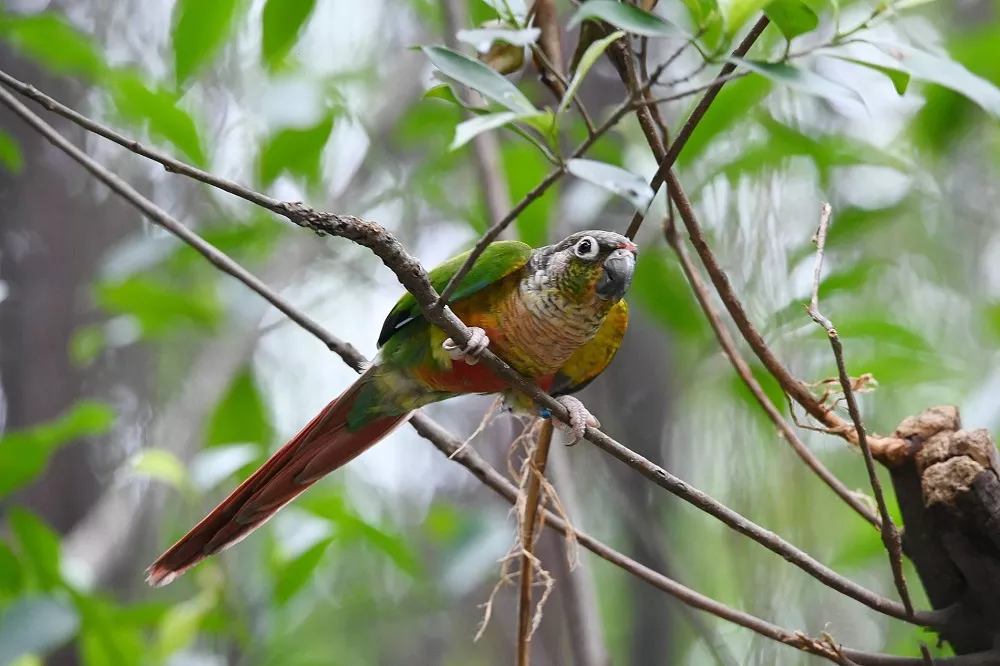Green-cheeked conures are a species of parrot that are often kept as pets. These birds require a varied and nutritious diet to stay healthy, and incorporating vegetables into their diet is an excellent way to do so.
Here are some vegetables that are safe for green-cheeked conures to eat:
1. Leafy greens:
Conures enjoy eating leafy greens such as spinach, kale, collard greens, and Swiss chard. These greens are high in vitamins A, C, and K, as well as calcium, iron, and potassium.
2. Carrots:
Carrots are a great source of vitamin A, which is important for a conure’s vision and immune system. They also provide fiber and beta-carotene.
3. Broccoli:
Broccoli is a cruciferous vegetable that is high in fiber, vitamin C, and calcium. It can be served raw or lightly steamed.
4. Sweet potato:
Sweet potatoes are a good source of fiber, vitamin A, and potassium. They can be cooked and mashed, or diced and steamed.
5. Bell peppers:
Bell peppers are a good source of vitamin C and antioxidants. They come in a variety of colors, and can be served raw or cooked.
6. Zucchini:
Zucchini is a low-calorie vegetable that is high in fiber, vitamin C, and potassium. It can be sliced and served raw, or steamed and diced.
7. Squash:
Squash is another low-calorie vegetable that is high in fiber and vitamin C. It can be cooked and mashed, or diced and steamed.
It’s important to note that some vegetables are toxic to birds and should be avoided.
Here are list of vegetables that are poisonous to Green-cheek conures:
1. Onions and Garlic
Onions and garlic contain compounds that can damage a bird’s red blood cells, leading to anemia. Even small amounts can be harmful, so it’s important to avoid feeding your green-cheek conure any food that contains onions or garlic.
2. Rhubarb
Rhubarb is a vegetable that contains oxalic acid, which can be toxic to birds. Symptoms of oxalic acid toxicity in birds include drooling, vomiting, and abdominal pain. Avoid feeding your green-cheek conure any food that contains rhubarb.
3. Mushrooms
Mushrooms are not toxic to all birds, but they can be harmful to some, including green-cheek conures. Some species of mushrooms contain toxins that can cause liver and kidney damage, leading to serious health problems or even death. To be safe, it’s best to avoid feeding your bird any mushrooms.
4. Potato Leaves and Stems
While potatoes themselves are safe for birds to eat, the leaves and stems of the potato plant contain solanine, a toxic compound that can cause gastrointestinal distress and neurological symptoms. Make sure to remove all leaves and stems from potatoes before feeding them to your green-cheek conure.
It is important to note that while these vegetables are safe for green-cheeked conures to eat, they should be offered in moderation as part of a balanced diet that also includes high-quality pellets and a small amount of fruit. Additionally, any new foods should be introduced gradually to avoid upsetting the bird’s digestive system. By incorporating a variety of vegetables into a green-cheeked conure’s diet, you can help ensure that your feathered friend stays healthy and happy.


 Facebook
Facebook  Instagram
Instagram  Youtube
Youtube 